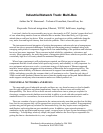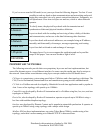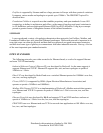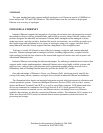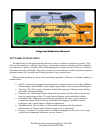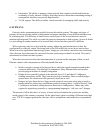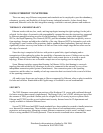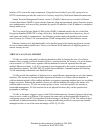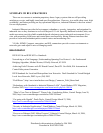Profibus is supported by Siemens and has a large presence in Europe with three protocol variations.
It supports various media and topologies at speeds up to 12Mbit/s. The PROFINET spin-off is
discussed later.
Foundation Fieldbus is a special case that straddles proprietary and open standards. It uses OSI
terminology to define its architecture and offers a wide range of topology and speed variations in
its H1 definition, and uses high speed Ethernet (HSE) for its H2 definition. Using layer concepts
permits a greater chance of integration because of the defined boundaries.
SUMMARY
Lower speeds and a variety of topologies characterize these networks, but Profibus, Modbus, and
Foundation Fieldbus have also joined the Ethernet bandwagon. While each network is important in its
own right, none can claim its physical and data link layer protocols are good interconnect strategies,
and thus need some type of gateway to communicate with other industrial networks. Next up, a review
of the most important open standard networks.
OPEN STANDARD
The following networks were either created to be Ethernet-based, or evolved to support Ethernet
and some TCP/IP functionality.
Industrial Ethernet Protocol (Ethernet/IP) was developed by Rockwell. As the name suggests it
supports Ethernet and TCP/IP. Ethernet/IP supports line, star, and tree topologies at speeds of
10Mbit/s to 1 Gbit/s.
EtherCAT was developed by Beckoff and uses a switched Ethernet protocol at 100Mbit/s over line,
star, tree, and ring topologies.
FL-net (OPCN-2) is supported by JEMA (Japan Electrical Manufacturers Association) and
operates at speeds of 10Mbit/s and 100Mbit/s
Modbus-IDA Ethernet TCP/IP is an implementation of Rockwell’s Modbus network that operates
over Ethernet and TCP/IP. It operates at speeds of 10Mbit/s to 1 Gbit/s over star, tree, and line
topologies.
Ethernet Powerlink was developed by B&R and supports TCP and UDP interfaces and runs at
speeds of 10Mbit/s to 1 Gbit/s over star, bus, tree, and line topologies.
PROFINET runs over Ethernet and uses TCP for non-real-time applications at 100 Mbit/s over star,
bus, tree, and line topologies.
Distributed with permission of author by ISA 2006
Presented at ISA EXPO 2006




